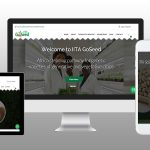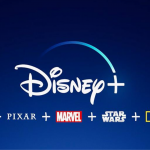TechInAfrica – As organizations become more complex and dynamic, individuals’ ability to learn from experience becomes more important. People often say the phrase ‘study hard’, not knowing that studying (or learning) hard is not as effective as studying smart. How do we squeeze the last bit of juice without working too much for it—squeezing more value from what we learn? Experts call this ‘study smart’ thing as agile learning, in which subjects are expected to trim the unneeded information and leave the most valuable ones.
Entrepreneurs must be able to process and situate this learning agility to adapt to the ever-changing demands in the market. Quick thinking and quicker problem-solving are two of the main notions regarding this method, and it will serve a whole lot more than job performance.
Make reading your default mode
Okay, I know everyone is busy—hey, so am I—and people would probably rather spend time doing something they like as a hobby or getting some rest after their stressful days at work. But one of the most fervent aspects of learning agility is to constantly consume information (before you can trim the unneeded information, of course) and the best way to do so is through reading.

In addition to introducing you towards new points of view, reading can also help to broaden your vocabulary and serve as gateways towards topics you never knew you had interest in. For example, I never knew astronomy was so interesting until I read Good Morning, Midnight by Lily Brooks-Dalton. Way to go one step ahead of your friends!
If you’re concerned about finding the time, always bring a book in your backpack (or purse, I don’t judge) and read during your down times. Between classes, between meetings, in the cab, or before you go to bed.
Hey, if someone as busy as Bill Gates finishes one book a week, then we can do so, too.
Learn deliberately—not just on a fling
Meaning, learning to actively acquire new information. Not just browsing the dictionary or finding out the lyrics to your favorite songs, but learn with the intention to incorporate this material into our existing framework and be able to access it later. This, in return, would grant us sharp mind and sharper focus.
To be an agile learner, it’s important for us to make a habit to learn deliberately to constantly process new information. Find the right method for you—for me, I learn most when I’m listening to music—and receiving new information will be a walk in the park.
Make intervals for your learning sessions

Okay, constantly learning is good—but you also need to consider whether or not you’re gonna fatigue out from processing new information every minute. A thirty-minute daily reading habit will go a long way compared to a non-habitual two-hour reading session. Committing to a productive habit is undoubtedly better than a one-time binge.
Josh Bersin and Marc Zao-Sanders, entrepreneurs and Harvard Business Review contributors, suggested that active agile learners should make a to-learn-list. “Write down a list of concepts, thoughts, practices and vocabulary you want to explore, book mark them in your browser and add them to your list. You can later explore them when you have a few moments to reflect,” they had advertised.
Harry Truman once said that “not all readers are leaders, but all leaders are readers.”
Not everything you read on the internet is true, so why not prove it for yourself?
Learn from others with experience
If you want to delve deeper into one particular topic, it’s best to ask someone with personal experience over that subject. It doesn’t matter what your age, gender or background is when you decide to want to model yourself after the person who has achieved the topic in question earlier than you.
By learning from others’ experience, we’ll avoid any mistakes that they made in the past whilst saving time to forge our own journey. Oh, and it’s a lot more fun and energizing than forging it all by yourself.
Cross-train between subjects
Despite people believe that success came through specialization or expertise regarding one particular subject, an expert in all subjects are much more valued by worldwide corporations nowadays. Vikram Mansharamani, writer for Harvard Business Review, professed, “our highly interconnected and global economy means that seemingly unrelated developments can affect each other.”

Alongside new, fresh, and diverse information that we can indulge ourselves in, studying a couple subjects can bring us towards connections across boundaries and transfer knowledge from subject matter to another.
Practice, practice, practice
Your capacity with agile learning will improve as you practice and implement it to your daily life. There’s little to no such thing as genetically-gifted talents when it comes to learning agility. What differs us from expert performers is not their gifted talent, but the will to make their practice as a lifestyle.
Similarly, you shouldn’t think of agile learning as a chore or as a daily routine. Perceive it, embrace it as a lifestyle and the benefits will come to your business and your personal self-growth.

That’s six tips to help you learn smarter, not harder. Are we missing something? Or maybe you want to add your own version of making yourself learn smarter? Let us know in the comments section!
Source: entrepreneur.com





